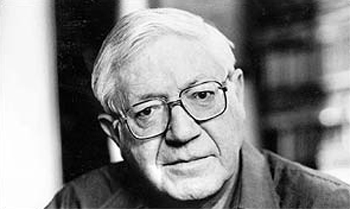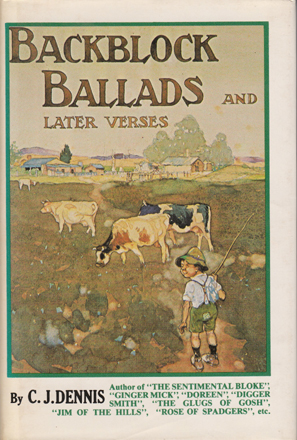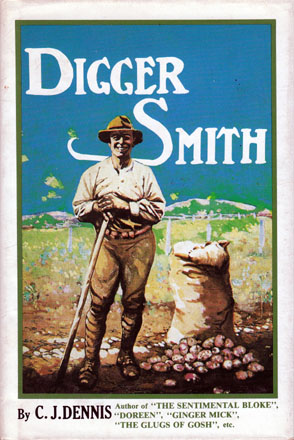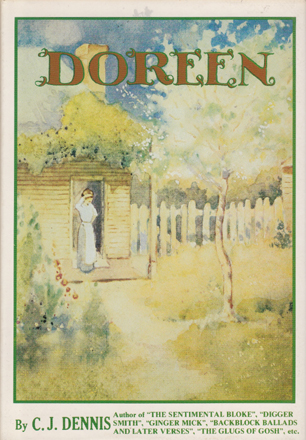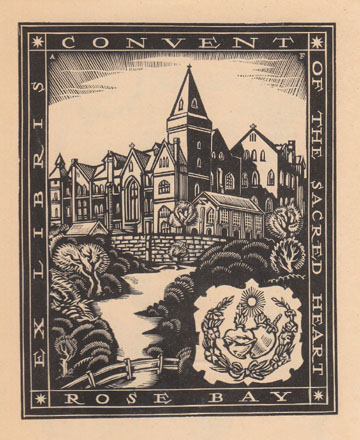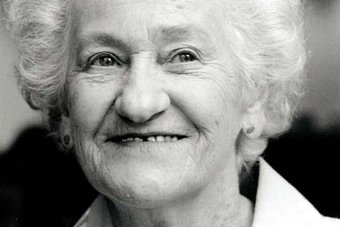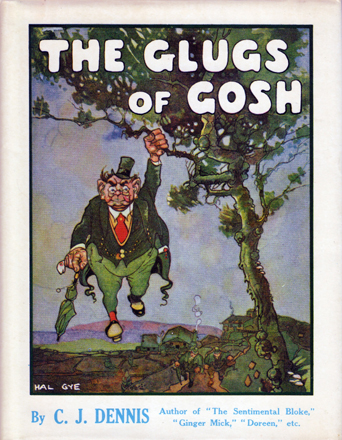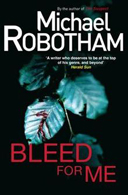Talking of Centenary odes - No: I shall not say what I was going to say, because I believe that the encouragement of poetic expression, or, if you like, verse writing and verse appreciation, is a good thing for this, or any other country. Others will perhaps recall, better than I, his exact phrasing who declared that he would willingly forgo all other triumphs in his country's service were he permitted to write his country's songs. And the truth underlying that strange aspiration is as vital today as it was when the lines were written.
But I am afraid that the majority of us (including the verse writers) have grown too mentally indolent to delve a little and discover why truth should be there, and why it should be vital.
If you don't want to make the discovery, well, you won't. And that's that. Keep on lobbying, and try to induce the Government to raise the duty on something you are making, or to lower the duty on something you are importing, or to pay a bonus on something you are producing, and you will probably make a lot more money, and be happy ever after.
Do you know that, not so many years ago, Australia, in proportion to population, had more poets and verse writers than any country on earth, with the possible exception of Wales? But Australia's proportion of verse buyers (and so, presumably, verse readers) was easily the highest.
In recent years the beating of the primitive tom-tom, the howls, cat-calls, and cacophony of jazz, and the wailing cry of unspeakable crooners, have deafened the listening world to the voice of the poet crying in a wilderness. We are, for the moment, in the hands of the cheap-jacks; but they shall not prevail.
For today signs are not wanting that poetry (and its humble sister, verse) are coming back to their respective dominion. Poetry, one of the great arts of man, will inevitably survive, because it IS one of the great arts, and, therefore, Imperishable.
The revival of poetry may not come in the old forms of pastoral simplicities, in heroic and other forms that thrilled our forebears. It may take on nobler and even grander forms. Who knows? Even the free verse addicts may be groping for something. But come it will.
But modern exponents of jungle rhythm and archaic antiphonies, distorted out of recognition, need not pride themselves that they have had hand in the temporary setback that poetry has suffered. That came in the 'nineties, with the inevitable swing of the pendulum form the limit of the arc which it had reached in the 'eighties. Tennyson, Swinburne, the strangely virile Henley, and their ilk sang its lullaby. Then came the worldly wise men who "watched their step" (and their publishers). Kipling, Meredith, Hardy, all wrote verse - sometimes poetry - but it was, as it were, a by-product of their industry.
With the waxing of the industrial age they, too, had become, unconsciously, industrialist. Thus Kipling, who wrote "The Recessional" and "The Widower" for his heart, also wrote "Plain Tales from the Hills" and "Jungle Stories" for a living.
So with Meredith and Hardy who, had they not been great novelists, might, in even happier circumstances, have been great poets. But they, prophetically, saw the writing on the wall, or in the newspapers, or somewhere, and did the worldly-wise thing. But the pendulum, if I see it aright, has reached its other extreme.
So, potential writers of the great Centenary Ode, be not discouraged! If your best is good, there is a chance that it will live.
I had intended this to be a brightly humorous article; but, carried away by what the Victorians roguishly called "the exuberance of my own verbosity," I have been led astray. I am sorry.
But, talking of Centenary Odes, my advice to young ode writers is: "Be exuberant; be verbose" - for your own entertainment. Then, for the public, cull the gold (if any) from the dross. And, if your best is good - who knows. Poetry may yet be classed among Australia's primary products, and be bolstered with a bonus.
First published in The Herald, 30 January 1934
Note: the centenary of the state of Victoria in 1934 brought forth the concept of an ode to commemorate the event. Dennis had a lot of fun with the idea, and a lot to say about it.
